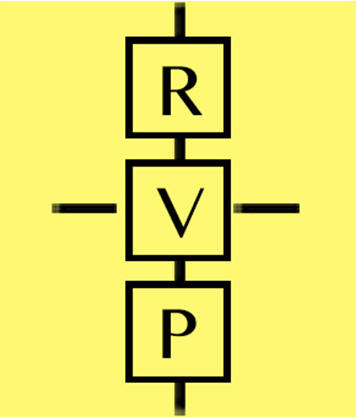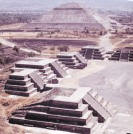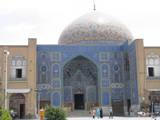|
AN INVITATION
THE ANNUAL SEMINAR
Civil Society: Who Belongs?
September 10 -
November. 15, 1996
Washington, D.C.
The
Problem
It seems
characteristic of these years to say that the age of big
government is passed. This could refer tothe communist
utopia of state planning which assured work for all, or
to the "New Deal" vision, born of the great economic
Depression, that it was the task of the government to
assure the basic needs of all, especially the needliest.
In contrast, these years seem to be characterized by a
general rejection of the sense of inclusive
responsibility for the welfare of a every citizen.
Some, such as
Hannah Arendt, would say that the failure of the great
modern revolutions lay in their taking up the insoluble
social questions of the distribution of wealth, rather
than focusing simply upon assuring participation in
decision-making regarding the commonweal. But, for
essentially social beings, civil participation and basic
well being appear to be so intricately interwoven that
present trends toward the exclusion of many groups--in
contrast to the inclusion of all--bear the most ominous
implications.
The phenomenon
appears pervasive in our times. Genocide, which had been
thought to have been put behind us at the end of the
second World War, has come back to haunt middle Europe,
as well as ethnicities and tribes in other regions of
the world. Immigration has become massive in scale,
leaving everywhere both residues of the problem of
assimilation similar to that generated by slavery in the
past and a corresponding threatened sense of homeland.
In the technologically and economically most advanced
regions populations become increasingly divided between
an ever smaller technically sophisticated group which is
able to benefit from technical and economic development
and the large majority which is being moved to the
service sector. An increasing number is becoming less
able sufficiently to share in the benefits of progress
to be able to endow their offspring with the abilities
required to partake in the new opportunities.
Whether from
pride in one's culture or from fear of others whether,
from poverty or from wealth, the matter of belonging has
emerged as a central issue of our times.
The Challenge
Seen in the above
terms the challenge is not only a matter of political
structures and economic dynamisms; more broadly it
concerns the basic social sense of a people as a whole.
The political structures will not be adjusted unless
there is a sense that they need to include groups
presently excluded. Nor will the economic structures be
improved while those they exploit are viewed as less
than full members of society, indeed, as less than fully
human, complete persons or respected human groups.
Political and economic change require a broader social
sense of others not simply as alien, but in their full
human dignity as persons and groups who rightly should
participate in society with its responsibilities and
benefits. This is the basis for civil society and a
civil culture.
This broader
reality of civil society is characterized both by
solidarity within groups and by a subsidiary relation
between the groups. This maximizes freedom by leaving
local decisions to local groups, rather than
transferring their responsibility to higher, less
involved, "decision making" bodies. But if solidarity is
not to mean exclusiveness and if subsidiarity is not to
mean subjection and exploitation then they must be based
upon full participation by all persons. Hence, the
emergence of concern for civil society points to
participation--to the question "Who Belongs?"--as a
basic, even prior, issue which today is in need of
urgent attention. This, in turn, involves issues of
universal human dignity, of the essentially social
nature of the human person, and hence of the basic right
of every person and group to participate in the life of
society.
Fortunately,
insistence upon sameness, upon tailoring everyone to the
same Procrustean bed, has come to be recognized as
crudely insensitive and unjust. The new awareness of
cultures tends to be joined to a new degree of awareness
of diversity; this, however, can be perceived not only
positively but negatively. In a time of mass migrations
this can be deeply unsettling to the host people's sense
of peace, stability and security, experienced in terms
of an identifiable home and homeland: the right to
remain can be no less than the right to leave.
From this flow a
number of anguished questions for civil society:
- Can diversity
contribute to, rather than destroy, solidarity?
- Is there a way
in which communities can retain their solidarity while
opening to others in a pattern of subsidiarity which
promotes, rather than destroys, the cultural identity
and humanizing roots of the community?
- Can diversity
and equality be wed?
This seminar will bring together representatives of
different regions and multiple disciplines in an attempt
to face this first challenge to the redevelopment of
civil society in our times: namely, the basic issue of
inclusion or participation in society. On what bases and
in what structures is it possible both to recognize and
celebrate the unique character of all persons and groups
and to promote cohesion within a broadened sense of the
common good.
The
Response
For this there are significant and promising resources.
The humanities (history and literature) can uncover the
values of the various cultures. The social sciences
(psychology, sociology and economics) can contribute
understanding of the structures of the world in which we
live. Above all, it will be necessary to think together
philosophically, in order to understand the way in which
human freedom is open rather than closed, and how
self-assertion consists in reaching out to others.
To realize this a
seminar is envisaged which will have the following
characteristics:
- Size:
restricted to under 20 scholars, in order to facilitate
intensive interchange around a single table;
- Interdisciplinary:
in order to draw upon the contemporary capabilities of
the various humanities and sciences and to penetrate
deeply into the philosophical roots and religious
meaning of cultures;
- Inter-cultural: to
benefit from the experiences and commitments of the
various ethnic communities from all parts of the world,
to discover their particular problems in our day, and
especially to envisage new and creative responses;
- Focused: a
single integrating theme, in order to encourage a
convergence of insights;
- Duration:
10 weeks, in order to allow the issues to mature, the
participants to establish a growing degree of mutual
comprehension, and new insight to emerge;
- Intensive:
analyzing in detail the papers planned in common and
written by each of the participants during the seminar;
and
- Publication:
the resulting volumes, consisting of chapters written by
the individual seminar participants, intensively
discussed in the seminar and then redrafted, will
reflect concretely the work of the seminar and share it
with those working in the various cultural communities
in facing the problems of contemporary life.
The
Organization
- Sponsor:
The Council for Research in Values and Philosophy, in
cooperation with The Catholic University of America and
Oblate College.
- Participants
in each seminar: 10 scholars in related disciplines
from the various continents, with an equal number of
professors from universities in the Washington area. The
visiting scholars will be welcome to join in seminars
and courses at CUA, and to use the libraries and
research facilities of the Library of Congress and the
Universities and Institutes of the Washington area in
the furtherance of their research. The period of the
seminar should constitute effectively a hard working
mini-sabbatical.
- Place:
Room 300, St. Bonaventure Hall, The Catholic University
of America, Monroe and Michigan Ave. (at the
Brookland-CUA Metro Station), Washington, D.C.
- Schedule:
Fridays, 3:00-5:00 p.m.: presentation by the individual
participants of the drafts of their chapter, as a basis
for intensive critical and exploratory discussion by the
group.
|







